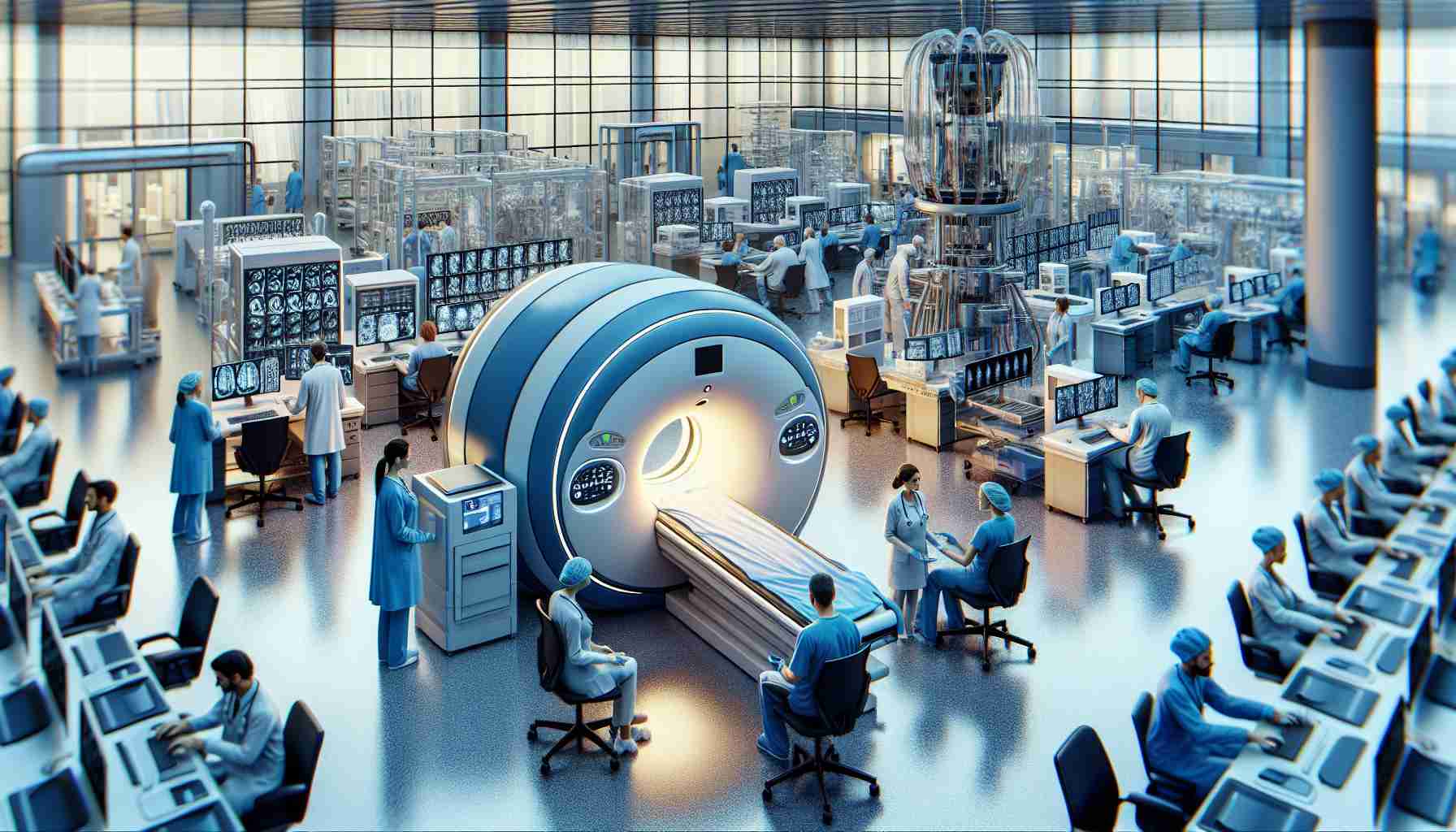The Ohio State University Comprehensive Cancer Center has teamed up with Pavmed’s digital health subsidiary Veris Health to enhance cancer treatment through the Veris Cancer Care platform (CCP). This initiative represents a groundbreaking collaboration to bring advanced digital care into the realm of oncology.
Patients enrolled in the pilot will gain access to the VerisBox, a compilation of Bluetooth-enabled connected healthcare devices designed to make monitoring and symptom reporting easier and more accurate. This technology package supports a more dynamic communication channel between the cancer care team and their patients through a smartphone app and a clinician portal, ensuring a reliable collection of clinical data.
James Mitchell, the Chief Medical Officer at Veris, expressed optimism about the pilot, highlighting the program’s potential to revolutionize the personalized care experience for numerous patients. The advanced system is expected to identify complications early, aiming to minimize unforeseen hospital visits.
Remote patient monitoring, a focal point of this program, is fast becoming an invaluable element in health management. Industry forecasts anticipate the RPM market to approach a worth of $760 million by 2030, demonstrating significant growth within the decade.
In parallel strides, healthcare fields are increasingly incorporating digital patient monitoring, as evidenced by the recent partnership of Elekta and Merck & Co with the Kaiku Health platform for renal cell carcinoma patients. Similarly, Sciensus has expanded its digital health suite with the acquisition of Vinehealth app, further showcasing a trend towards technology-enabled patient care.
The collaborative efforts at OSUCCC-James mark just the beginning of a transformative wave in cancer management, where technology meets human need to provide streamlined, patient-centered healthcare.
Relevance of Remote Patient Monitoring (RPM) in Cancer Care: RPM in oncology offers a suite of advantages that can potentially transform the sector. By closely monitoring patients’ health status digitally, interventions and adjustments to treatment can be made quicker, potentially improving outcomes. RPM also offers convenience for patients, reducing the need for frequent hospital visits which can be both physically and emotionally taxing. In the context of this pilot program, these benefits directly align with the projected growth and adoption of RPM technologies in healthcare.
Importance of Early Detection and Intervention: One of the most significant aims of the Veris Cancer Care platform is the early identification of complications, which is a critical factor in cancer care. Timely intervention can drastically affect the success rate of treatments and can prevent the progression of the disease to more serious stages. If the VerisBox and associated technologies can accurately provide early warnings for complications, it potentially minimizes hospital readmissions and enhances patient outcomes.
Key Questions and Answers:
– What is the scope of the pilot program? The program aims to integrate RPM technology with standard oncology practices to improve patient care. However, the article doesn’t specify how many patients will be enrolled, which cancer types will be targeted, or the duration of the pilot study.
– How might RPM technology impact the role of healthcare professionals? It may enable healthcare professionals to track patient data in real-time and respond more rapidly to changes in a patient’s health. However, it may also require additional training and adjustments to existing workflows.
Key Challenges and Controversies:
– Data Privacy and Security: Implementing digital health technologies can raise concerns about the privacy and security of sensitive health data. Ensuring that these technologies comply with regulations like HIPAA is crucial.
– Technology Access and Equity: There’s also the challenge of ensuring that all patients have equal access to these technologies. Disparities in access could potentially widen the gap in cancer care outcomes between different socioeconomic groups.
– Technical Literacy and Adoption: Some patient populations may not be as comfortable using digital health devices, potentially limiting the effectiveness of RPM technologies for these groups.
Advantages and Disadvantages:
Advantages:
– Provides real-time health data to clinicians
– Early detection of complications improves intervention outcomes
– Reduces the need for in-person hospital visits
Disadvantages:
– Concerns about data security and patient privacy
– Risk of inequity in access and health outcomes
– May require significant behavioral adaptation from patients and clinicians
Related Links:
For more general information about The Ohio State University Comprehensive Cancer — The Ohio State University Comprehensive Cancer Center
For insights on the future of digital health and its applications in various sectors of healthcare — Pavmed
For industry growth reports and analysis on Remote Patient Monitoring — Veris Health
